Results
-
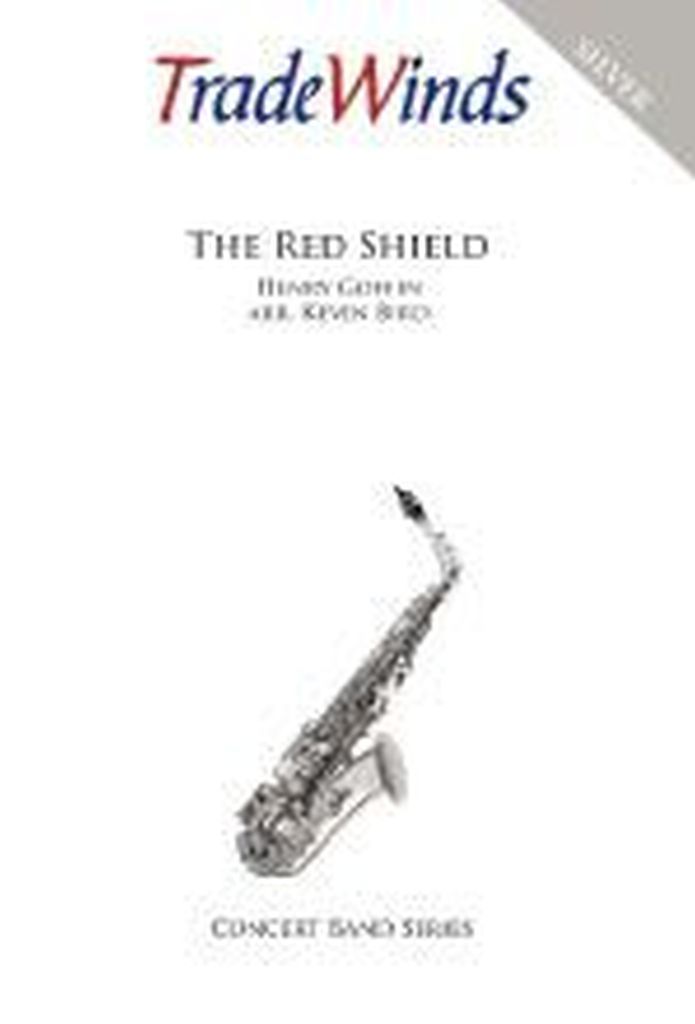 £54.95
£54.95The Red Shield
Written in 1928, this march has become a Salvation Army classic. The title refers to The Salvation Army red shield logo known the world over.
Estimated dispatch 7-14 working days
-
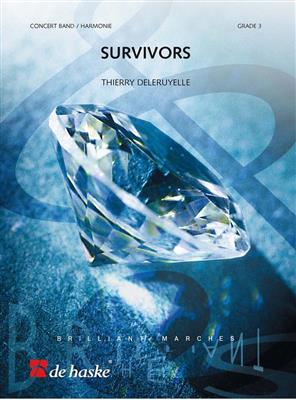 £64.99
£64.99Survivors - Thierry Deleruyelle
Survivors is a concert march that is both luminous and tuneful. The brilliance of the brass, combined with the expressiveness of the woodwinds, gives this work a clear modernity. It was composed for and dedicated to those wounded in the army, paying tribute to their courage, resilience, and inner strength. Through a musical style rich in emotion and power, this work celebrates the "survivors" - those who, despite the hardships of war and injury, continue to pick themselves up, overcome adversity, and find within themselves an unshakeable determination. Survivors embodies both the enormity of the struggle and the hope of reconstruction, a march for those who have been wounded but who, through their courage, have become survivors. This concert march was commissioned by the French Army bands on the initiative of their musical director, Maurice Marc.
Estimated dispatch 7-14 working days
-
 £60.50
£60.50The U.S. Field Artillery - John Philip Sousa
Composed in 1917, the official march of the United States Army is one of Sousa's most frequently performed titles. It's unique in that it uses a familiar tune for the trio theme; in this case, The Army Song. The original thematic material has been diligently preserved while scored to be accessible to the developing band. (2:30)
Estimated dispatch 7-14 working days
-
£99.99
Diamond Prelude - James L. Hosay
Diamond Prelude was written to commemorate the 75th Anniversary of the United States Army Band (Pershing's Own), andwas premiered at their 75th Anniversary Concert at the D.A.R. Constitution Hall in Washington, D.C. For 75 years the U.S.Army Band has proudly served the American people through their many performances throughout the world, as well asthousands of ceremonies and concerts in the national Capitol area. Now your band and audiences can enjoy James L.Hosay's exciting Diamond Prelude, written for one of the finest bands in the world.
Estimated dispatch 7-14 working days
-
 £72.95
£72.95This We'll Defend - Steven L. Rosenhaus
This composition is the first of a two-movement work dedicated to the United States Army. "This We'll Defend" uses the motif from the Army's "Chiasson Song" throughout. It is a slow movement giving honor and reference to the 108th Army. 1st trumpets highest note is B.
Estimated dispatch 7-14 working days
-
 £82.50
£82.50The Forge of Freedom - Travis J. Weller
George Washington and the Continental Armys withdrawal from Philadelphia to Valley Forge was one of the darkest chapters of the Revolutionary War. The demoralized mood of the troops is conveyed by the Revolutionary-era hymn Chester in a minor setting. A tempo change ushers in a new spirit as the Continental Army perseveres through the harsh winter and becomes a hardened fighting force. Finally, Chester is triumphantly presented in a major key as the now-formidable army emerges, ready to take up the fight and secure Americas independence.
Estimated dispatch 7-14 working days
-
 £149.99
£149.99Jericho - Bert Appermont
Jericho is the musical translation of the well-known story from the book of Joshua about the capture of the city of Jericho by the Israelites.Part 1 depicts the cruel journey through the desert to Canaan, the promised land. An emotional lamentation for the yearning for a home, for the end of a roaming existence.The capture of Jericho is the theme of part 2. The city cannot be captured immediately and Jehovah orders an impressive army to march around the city for six days. On the seventh day, they marched around the city seven times and the priests blew their trumpets and the people cried so loud that the walls of Jericho came tumbling down. The Jews stormed the city and drove theinhabitants away. The music clearly reveals the marching army and you can hear the walls falling down with a tremendous noise. However, there is quite some artistic freedom in the actual story.A majestic and grand melody subsequently evokes the triumphant emotions that emerged as the fortified city fell (part 3).Following a personal and romantic interpretation, the scene ultimately ends in a typical Jewish feast (part 4) whereby the virtuosity of melodies played by the woodwinds and the passionate rhythms refer to traditional Jewish music. All themes are repeated in this last part in various forms, often simultaneous and in duelling counterpoint. The piece ends with fragments from the main theme of part 1 in major: peace and quiet return at last.
Estimated dispatch 7-14 working days
-
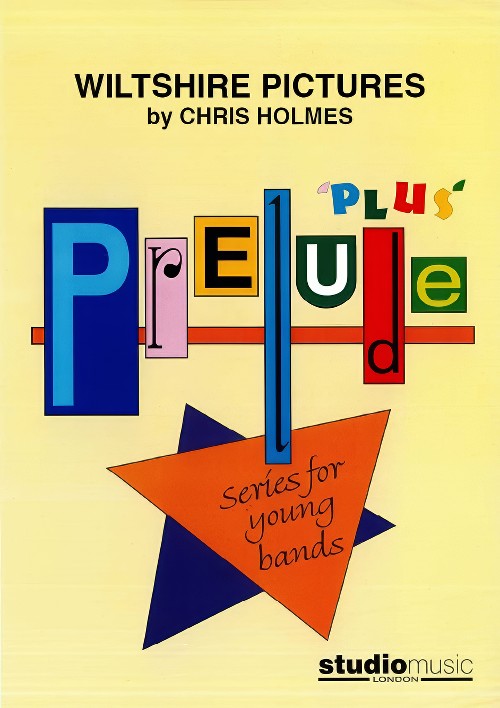 £59.95
£59.95Wiltshire Pictures (Concert Band - Score and Parts) - Holmes, Chris
Movement 1: Army on the Plain - More than 10% of Wiltshire is used by the Army for training, and all of it takes place on Salisbury Plain. As well as tanks and weapons of all sizes, there is plenty of marching!Movement 2: Spire - Since 1549 Salisbury Cathedral has had the tallest spire in the UK, at 123 metres. Majestic and awesome it soars over the elegant and peaceful Cathedral Close.Movement 3: Sarsen Stones - Stonehenge's vertical Sarsens weigh 20 tonnes and stand 7 metres tall, they are heavy!Movement 4: Moonrakers - From the 15th to the 18th century, there was much smuggling of illegal gin in Wiltshire. The story goes that a group that was trying to rake out barrels hidden in a village pond, and surprised by the Excisemen, feigned stupidity. They told the Excisemen they were trying to rake in the moon, reflected on the ponds surface. They were believed and left in peace! Wiltshire folk can still call themselves Moonrakers.Duration: 11:15
Estimated dispatch 7-14 working days
-
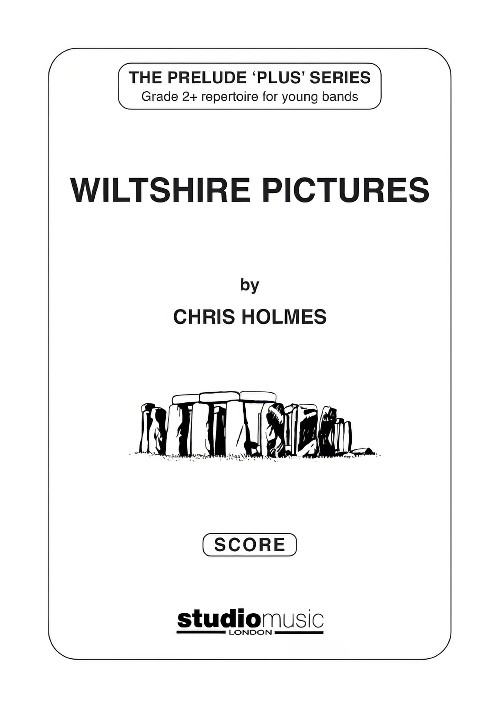 £11.95
£11.95Wiltshire Pictures (Concert Band - Score only) - Holmes, Chris
Movement 1: Army on the Plain - More than 10% of Wiltshire is used by the Army for training, and all of it takes place on Salisbury Plain. As well as tanks and weapons of all sizes, there is plenty of marching!Movement 2: Spire - Since 1549 Salisbury Cathedral has had the tallest spire in the UK, at 123 metres. Majestic and awesome it soars over the elegant and peaceful Cathedral Close.Movement 3: Sarsen Stones - Stonehenge's vertical Sarsens weigh 20 tonnes and stand 7 metres tall, they are heavy!Movement 4: Moonrakers - From the 15th to the 18th century, there was much smuggling of illegal gin in Wiltshire. The story goes that a group that was trying to rake out barrels hidden in a village pond, and surprised by the Excisemen, feigned stupidity. They told the Excisemen they were trying to rake in the moon, reflected on the ponds surface. They were believed and left in peace! Wiltshire folk can still call themselves Moonrakers.Duration: 11:15
Estimated dispatch 7-14 working days
-
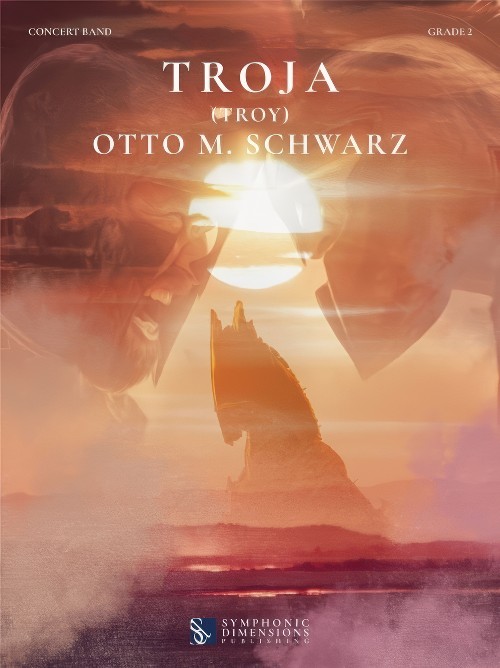 £79.99
£79.99Troja (Troy) (Concert Band - Score and Parts) - Schwarz, Otto M.
The Greek poet Homer wrote about Troy and the Trojan War, which probably took place in what is now Asia Minor, in his Iliad in the 8th century B.C. Nowadays, the term Trojan generally refers to a malware program that is used to gain unauthorised access to computers. This use comes from the legendary Trojan Horse, which saw the turning point in the battle between Greeks and Trojans through the cunning of Odysseus. Let us return to the beginning of the story: Paris, son of the king of Troy, is tasked by Zeus with judging the beauty of the three goddesses Aphrodite, Pallas Athena, and Hera. Aphrodite, the goddess of love, flatters Paris by promising him the most beautiful woman in the world. Soon afterwards, on a journey to Greece, Paris meets the beautiful Helen, who immediately falls in love with him. Since however she is the wife of Spartan king Menelaus, she eventually lets herself be kidnapped by Paris voluntarily. The Greeks then form a large army and go to war against Troy to retrieve Helen, leading to a ten-year siege of the city. The city is eventually conquered not through combat, however, but through Odysseus' cunning ploy. He has the idea of building an enormous wooden horse with warriors hidden inside. The horse is placed at the gates of the city. Thus, the Trojans are tricked into giving up the siege when, despite various warnings, they bring the horse into the city to dedicate it to the goddess Athena. At night, the soldiers climb out of the horse and open the gate for the Greek army. The troops storm the city and burn it to the ground. The royal family and all the Trojan warriors are killed, only Aeneas, the son of Aphrodite, escapes. Later, following many years' wanderings he and his acolytes will become known as the founders of the Roman people. There are various accounts of the fate of the beautiful Helen. She is said to have returned to Sparta with Menelaus and to have ruled there until the end of her life. Or maybe not...Duration: 6.00
Estimated dispatch 7-14 working days
